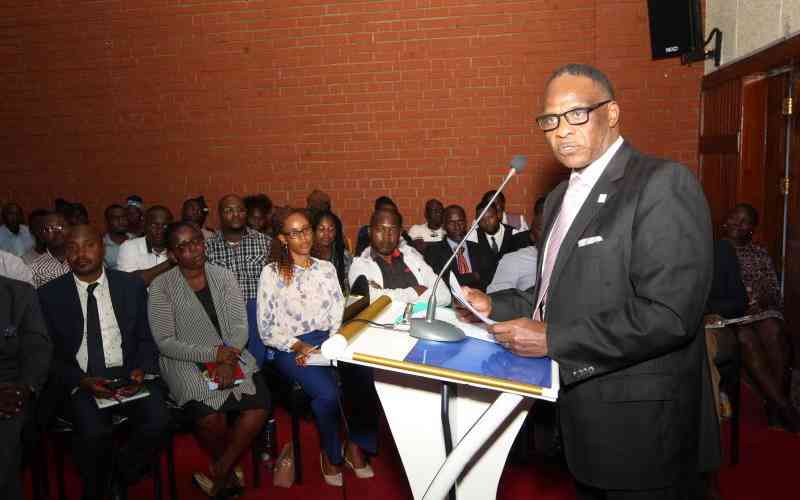×
The Standard e-Paper
Kenya’s Boldest Voice

Deputy Vice-Chancellor Academic and Student Affairs KCA University Prof Joshua Bagaka's address during a discussion on Taxation and Bottom Up Economic model at KCA University on Feb 23, 2023. [Jonah Onyango, Standard]
The government needs to widen the tax base from the usual income tax through Pay As You Earn (PAYE).